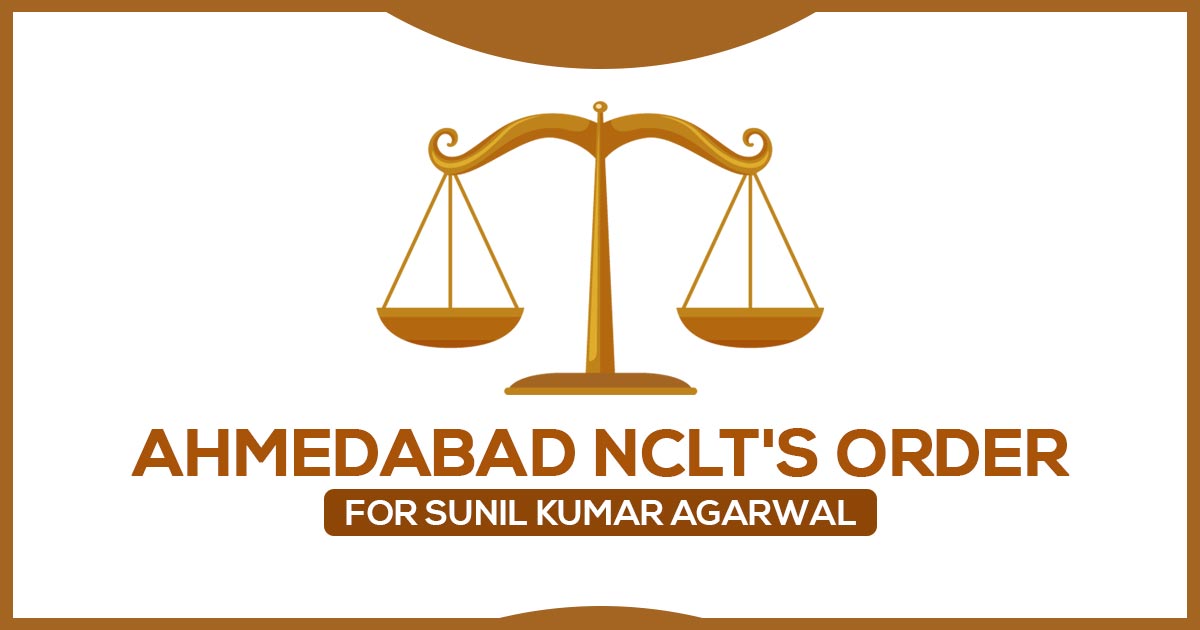
The National Company Law Tribunal (NCLT) in Ahmedabad, India, recently made a decision. The bench comprised of Mrs Chitra Hankare (Judicial Member) and Dr Velamur G Venkata Chalapathy (Technical Member), stated that when a company is being liquidated, the income tax paid by the buyer in an auction should be considered as a recovery of tax from the corporate deductor itself.
This means that the tax payment takes priority over other creditors, which goes against the goals and rules of the Insolvency and Bankruptcy Code (IBC). This law governs the process of liquidating companies in India.
Read Also:- Quick Guide to Use Pay Income Tax Later on 2.0 ITR Portal
The assets of the Corporate Debtor were sold to purchasers by the Liquidator in e-auction. The deducted amount was Rs. 28,92,101/- towards 1% TDS payable under Section 194-IA of the Income Tax Act, 1963.
The Income Tax Department has been instructed by the panel that the Corporate Debtor must be paid a refund of the sum of Rs. 28,92,101/-
The Key Facts of the Case
The NCLT admitted the Corporate Debtor, Varia Engineering Works Private Limited into the Corporate Insolvency Resolution Process (CIRP), on 21.12.2017. Following that, on 22.07.2019, the NCLT directed the liquidation of the Corporate Debtor.
The assets of the Corporate Debtor were sold by the Liquidator through an e-acuction. For that, the amount of Rs. 28,92,101/- was deducted by the final purchaser towards TDS, a capital accretion of the Corporate Debtor.
According to Section 194-IA of the Income Tax Act, of 1963. If the transfer payment of immovable property exceeds Rs. 50 lakhs, the deduction amount will be 1% of the sale payment concerning Income Tax by the transferee.
Any deduction charged following Section 194-IA of the IT Act and being paid to the Central Government provided under Section 199 of the IT Act. It will be considered as a tax payment on account of the individual who was subject to the deduction made or of the security owner, the property owner, or the depositor.
The Liquidator is only accountable for making payment receipts during liquidation. Also return of the Corporate Debtor cannot be filed by the Liquidator. In these matters, in the account of the Corporate Debtor, the TDS would remain uncredited.
Therefore, to let the NCLT instruct the Income Tax Department to claim the sum of Rs. 28,92,101/- which was deducted as Tax Deducted at Source into the account of the Corporate Debtor, the Liquidator applied before the NCLT.
The Liquidator stated that Section 53(1)(e) of IBC assigns the 5th position in the instruction of first concern to government dues and these dues cannot be paid to breach these orders.
The Verdict Given by the National Company Law Tribunal
The panel noted that the regulation by Section 53(1)(e) of IBC and Section 178 of the IT Act for government dues priority both have distinct purposes.
Moreover, according to Section 45 of the IT Act, gains that occurred from the capital asset transfer and are applicable in the past years must be saved in any other way given in the Section, subject to chargeable to Income Tax under the category of capital gain and shall be considered to be the Income Tax of the earlier years when the transfer was made.
Therefore, TDS as stipulated in Section 194-IA of the Income Tax is not more than an advanced capital gain tax levied through the purchaser.
The Bench stated that there is a difference between the purposes of both laws, Section 194-IA of the Income Tax Act. and Section 53 of the Insolvency and Bankruptcy Code (IBC), regarding the collection of government dues from a company going through liquidation. According to Section 238 of the IBC, Section 53(1)(e) of the IBC takes precedence over Section 194-IA of the Income Tax Act.
Additionally, since the IBC does not require the liquidator to file an Income Tax Return, the liquidator cannot claim a refund of the Tax Deducted at the Source paid by the buyer.
The Bench ruled that the TDS paid by the auction purchaser is considered tax collection from the Corporate Debtor, giving it priority alongside other creditors as stated in Section 53 of the IBC. This contradicts the objectives and provisions of the IBC.
The decision of the National Company Law Appellate Tribunal (NCLAT) in the case of Om Prakash Agarwal, Liquidator of S. Kumars Nationwide Limited vs. Chief Commissioner of Income Tax (TDS) was relied upon.
The NCLAT held that TDS under Section 194-IA is essentially an advance capital gains tax collected from the buyer, prioritized along with other creditors. Therefore, it is inconsistent with Section 53(1)(e) of the IBC, and on account of Section 238 of the IBC, Section 53(1)(e) shall have more influence.
The Bench concluded that the ruling in the case of Om Prakash Agarwal, Liquidator of S. Kumars Nationwide Limited vs. Chief Commissioner of Income Tax (TDS) is directly applicable to this case.
Consequently, the Bench has instructed the Income Tax department to return the amount of Rs. 28,92,101/- that was deducted as TDS to the account of the Corporate Debtor.
| Case Title | Sunil Kumar Agarwal v Chief Commissioner of Income Tax (TDS), Ahmedabad |
| Case Number | CP(IB) 149 of 2017 |
| Date | 30.09.2022 |
| Counsel For Appellant | Mr. Vishal Dave a.w. Mr. Nipun Singhvi, Ms. Pragati Tiwari, Mr. Nandish Chudgar, and Mr. Aravindakshan V. Nair. |
| Counsel For Respondent | Mr. Maithili Mehta |
| Ahmedabad NCLT Order | Read Order |